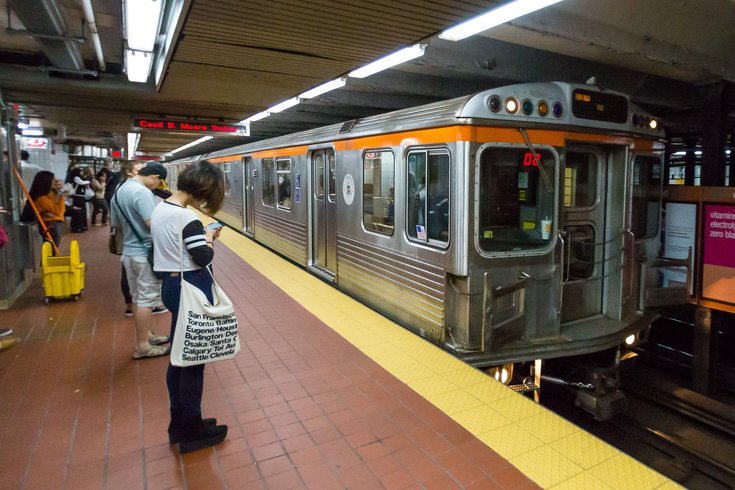More crime, more social problems, and fewer riders. The Pennsylvania Senate Transportation Committee’s hearing on safety and public transportation emphasized the problems faced by Philadelphia’s SEPTA system since the pandemic.
In the short term, incidents of serious crime scare away the public from riding; in the long term, a lack of fare revenue and the end of one-time federal money poses a financial risk to the commonwealth’s public transit systems.
“An overall indecency for humankind (is) destabilizing the sustainability and the future of the nation’s sixth-largest mass transit system,” said Sen. Wayne Langerholc, R-Clearfield, chairman of the Transportation Committee.
SEPTA Transit Police Chief Thomas Nestel stressed the struggles of recruiting new police officers and how much outreach is done to vulnerable communities.
SEPTA is budgeted for 260 transit officers, though it generally has around 230 or 240. It currently has 210, he said. When 961 people were invited to the first stage of the hiring process, only 78 showed up. Nestel only expects one hire to come from that pool, and it will take 12 months to complete the hiring and training process.
Those officers are needed to deal with the system’s issues exacerbated by the pandemic.
“We have a significant vulnerable population issue,” Nestel said. “The mentally ill and homeless have flocked to SEPTA.”
Nestel noted transit police conduct well-being checks and respond to quality of life issues about lying on the floor, blocking entrances, and loitering. SEPTA also has co-responder teams to help vulnerable populations and recently hired 88 ambassadors for outreach and to “be the eyes and ears” for police.
The strongest criticism of SEPTA came from the Transport Workers Union Local 234.
“The ongoing nature of the problems of homelessness, drug addiction and crime in the subway demonstrates a lack of will on the part of Chief Thomas Nestel,” said Brian Pollitt, president of Local 234, in his written testimony.
Pollitt said trains at the terminal points of subway lines have become “hotels for the homeless” and TWU members “are being threatened, assaulted and otherwise accosted while trying to perform their jobs.”
The union wants a stronger police presence to keep workers and the public safe from criminals.
“It’s common sense. They need a deterrent,” Pollitt said. “They need a guy with a gun and some bracelets … someone with the power to stop them from what they’re doing and the ability to arrest them.”
Nestel and Pollitt both noted that public transit faced two major health issues: the pandemic and the opioid crisis. Opioid, mental health, and homelessness issues tend to overlap.
CEO and general manager of SEPTA Leslie Richards acknowledged the health and safety concerns, but emphasized economic ones as well.
“We have increased spending on safety in this year’s budget by 50%,” Richards said. In her written testimony, she noted federal funding provided stop-gap funding to fill budget holes, but this will end in 2024.
“This increased reliance on short-term federal subsidies is unsustainable and presents a fundamental fiscal challenge moving forward,” Richards said. “Rebuilding ridership is fundamental to SEPTA’s long-term viability and the region’s economic success.”
Before the pandemic, 37% of SEPTA’s operating budget came from fare revenues, she said. “Now it’s 18%.”
This article was originally posted on More crime, fewer riders, bigger financial problem for Philadelphia public transit











More Stories
Rhode Island initiative focusing on infrastructure grants
State audit finds just $314,000 in ‘questioned spending’ in $21 billion in federal money
$3.2 million to expand manufacturing operations at Shoal River Ranch gigasite